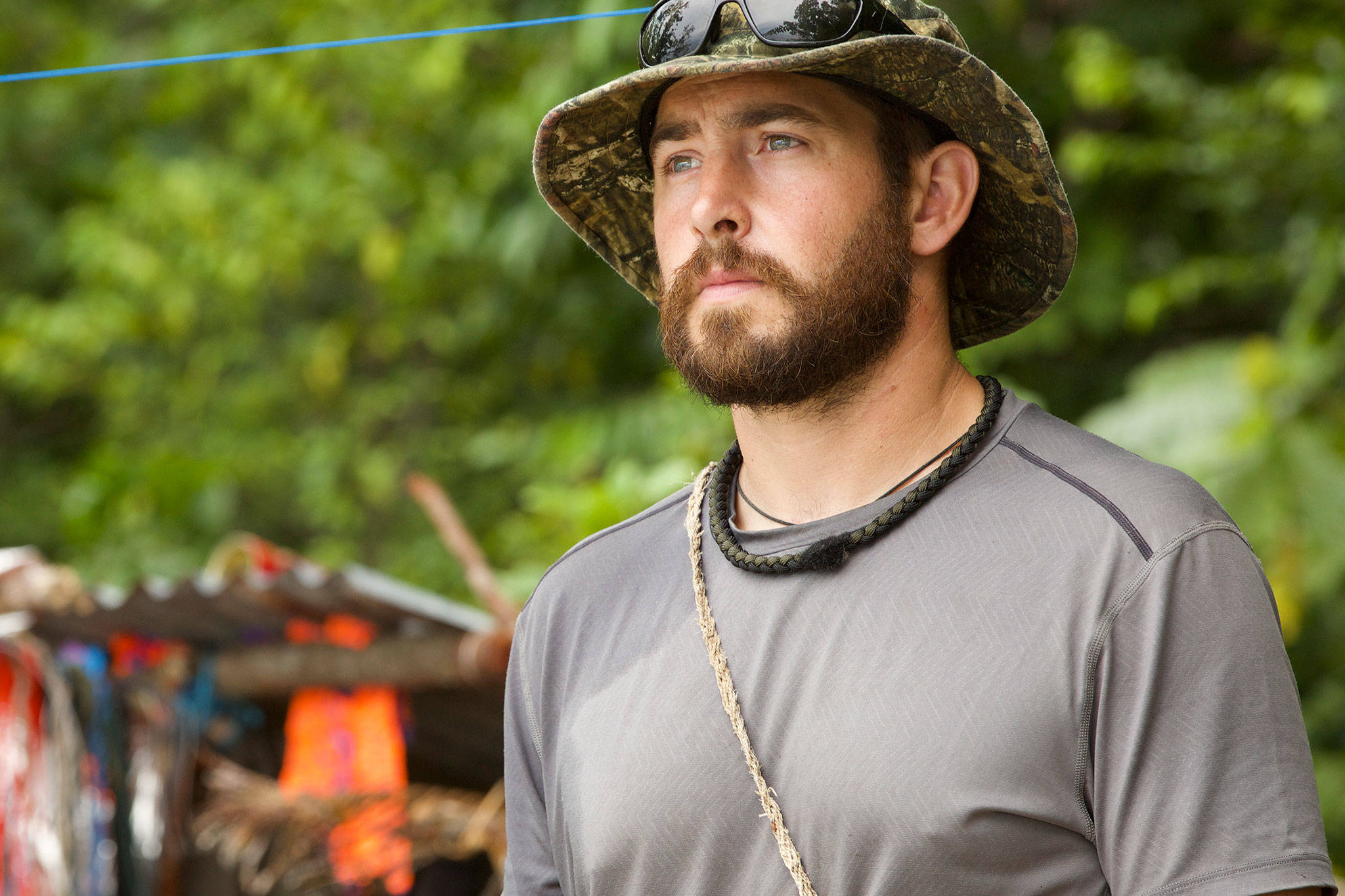SEQUIM — Sequim’s Richard Rogers looks back on his experience as a “Castaways” contestant with a firm belief in the human need for other people.
“You need people to survive, and the same with life, you need people in life to survive,” he said.
Rogers was one of 12 contestants randomly chosen from throughout the nation to be on an ABC television show, “Castaways” that aired Aug. 7 to Sept. 17.
“Castaways” took ordinary people from all over the country and placed them separately on remote islands in Indonesia with scattered resources.
Contestants did not know who else was on the islands nor did they know when they would be rescued.
The show is described as a social experiment that tests the need for human companionship in dire circumstances. No prize was awarded, but Rogers said that “there was monetary compensation for making it to the end.” He declined to say how much he was paid.
Along with four other contestants, Rogers survived 41 days until the end of the show when the “castaways” were rescued. Rogers said he did not know what to expect when watching the show once it aired on television.
“It was as new of an experience for me as it was to all of the viewers,” Rogers said.
“[The show] wasn’t what I expected; I was expecting more of a survival experience and it became more of a social experiment, which is what [TV producers] emphasized.”
During his time filming in Indonesia, Rogers said he earned the nicknames “McGuyver” and “Sting Ray Slayer” from fellow contestants and the production crew for his resourcefulness on the island.
Rogers grew up traveling to fish hatcheries around the state with his father, a fish hatchery manager, and also is experienced in hunting and fishing.
“Growing up outdoors, being on fish hatcheries and building forts in the woods, and having the ingenuity base I had helped me be creative to use what we had to maximize our catch potential for fishing,” he said.
Rogers made crab pots, hand fishing lines, dip nets and a spear to help him catch food. He said his diet consisted of sting rays, coconuts and clams.
Throughout the course of 41 days he lost about 25 pounds, Rogers said.
On day three, Rogers met and teamed up contestant Sawyer Brown, a native of upstate New York, who he felt was “cut from the same cloth” as he was.
“Sawyer and I immediately hit it off,” Rogers said.
“We both had families back at home, and we were here to accomplish the same goal: making it to the end to improve the lives of our family.”
Rogers said a few keys to his success in surviving for nearly six weeks was keeping busy, staying positive and pairing up with Brown.
“I really enjoyed staying busy; it was hard to lay there and do nothing while [I was] starving,” Rogers said.
“Staying active kept the hunger pains and worrying about home at bay for me.”
Rogers said there was only one instance when he almost decided to go home, when he discovered there was a limitation to food sources on the island. Much of the island’s creatures are protected species, and food resources already were limited.
“At that point, it almost felt like we wouldn’t be able to survive,” Rogers said. “I was frustrated with the limitations put on us and felt it almost necessary to take my portion of the rations and give it to Sawyer.”
Despite that setback, Rogers and Brown decided they were in it together until the very end.
Rogers said that after 41 days of being stranded on an island — starving, with little contact with his family — he was ready to come home.
The experience of being rescued, he said, is difficult to put into words.
“It’s hard to try to envelop the feelings of being saved,” Rogers said.
“The emotions that overwhelmed us both physically and mentally, it’s like an emotion I’ve never felt before in my life,” he said. “It took our breath away and I shed my fair share of tears realizing we had completed it and were headed home to our family.”
Rogers said he enjoyed the experience and would do it again.
Readjusting to Sequim life was not difficult for him, he said, and after finishing the challenge he went back to work just three days later.
Rogers said the most difficult parts of the challenge were hunger and missing his family.
“I really enjoyed every aspect of it,” he said. “I think the biggest challenge was dealing with the emotional ups and downs and not knowing what was going on with family.”
Rogers said it was his family and the people in his life who inspired him to persevere to the end. His grandfather is a World War II veteran and he has friends who served in the military in both Iraq and Afghanistan. He wanted to be an example for his family as others were an example to him.
“To see them endure what they did and come out of it and still be a positive citizen in their community really gave me strength in the hardest of days,” he said.
“No matter how hungry I am, how lonely I am, this is nothing compared to what people I know in my life have accomplished.”
Rogers said he and Brown communicate regularly and expect to be good friends for the rest of their lives.
The experience has given Rogers a new appreciation for his life and his family.
“Appreciate what you have, value your family and relationships, and above all else put those first,” he said. “In the long run, that’s what we have that counts.”
________
Erin Hawkins is a reporter with the Olympic Peninsula News Group, which is composed of Sound Publishing newspapers Peninsula Daily News, Sequim Gazette and Forks Forum. Reach her at ehawkins@sequimgazette.com.

